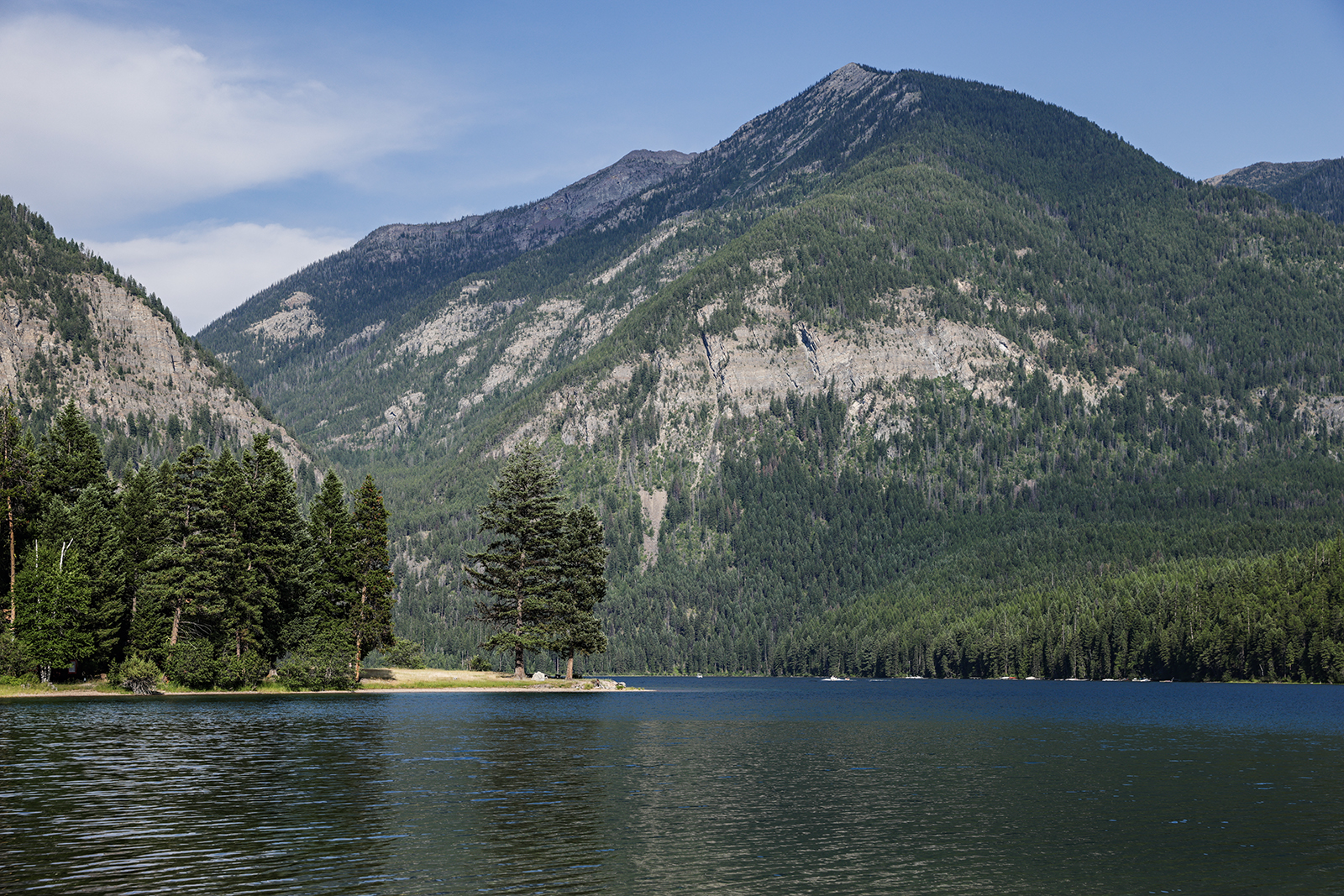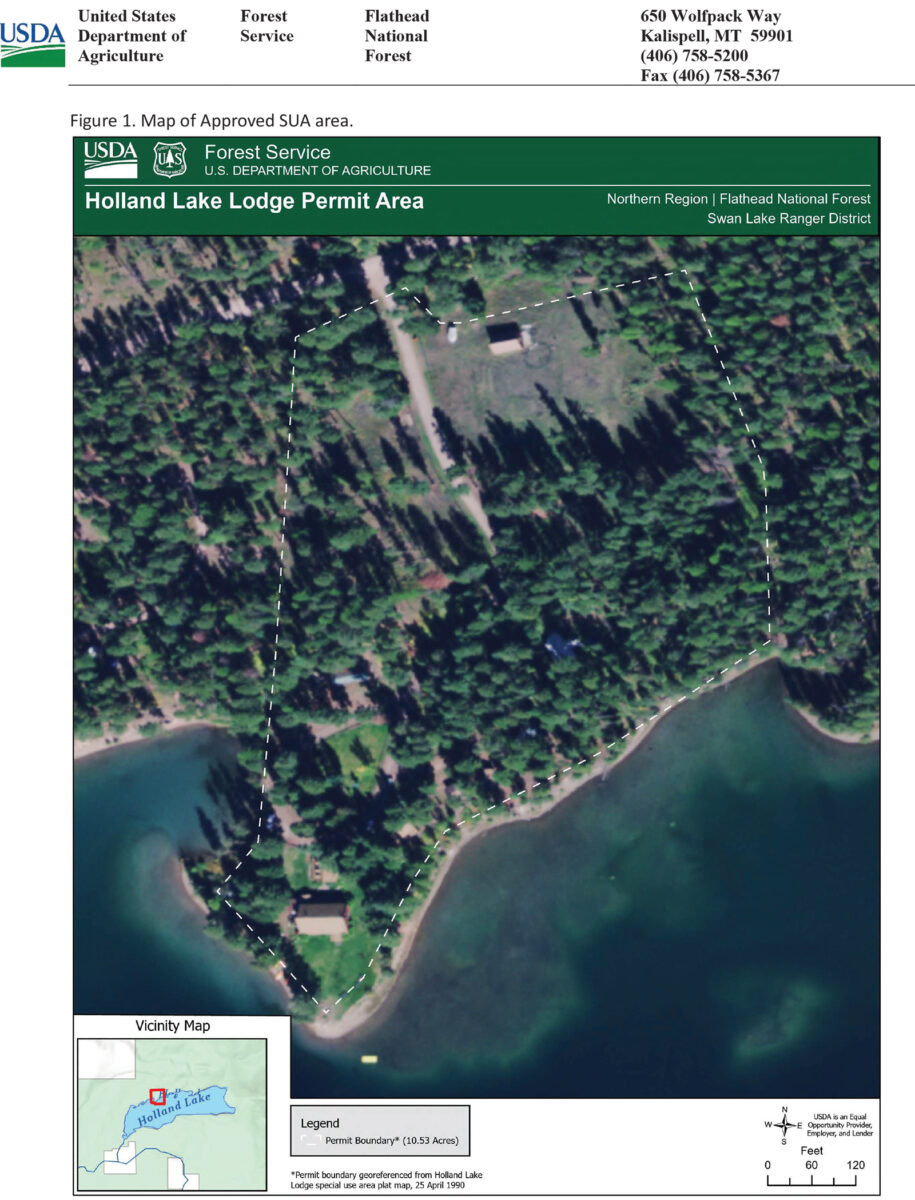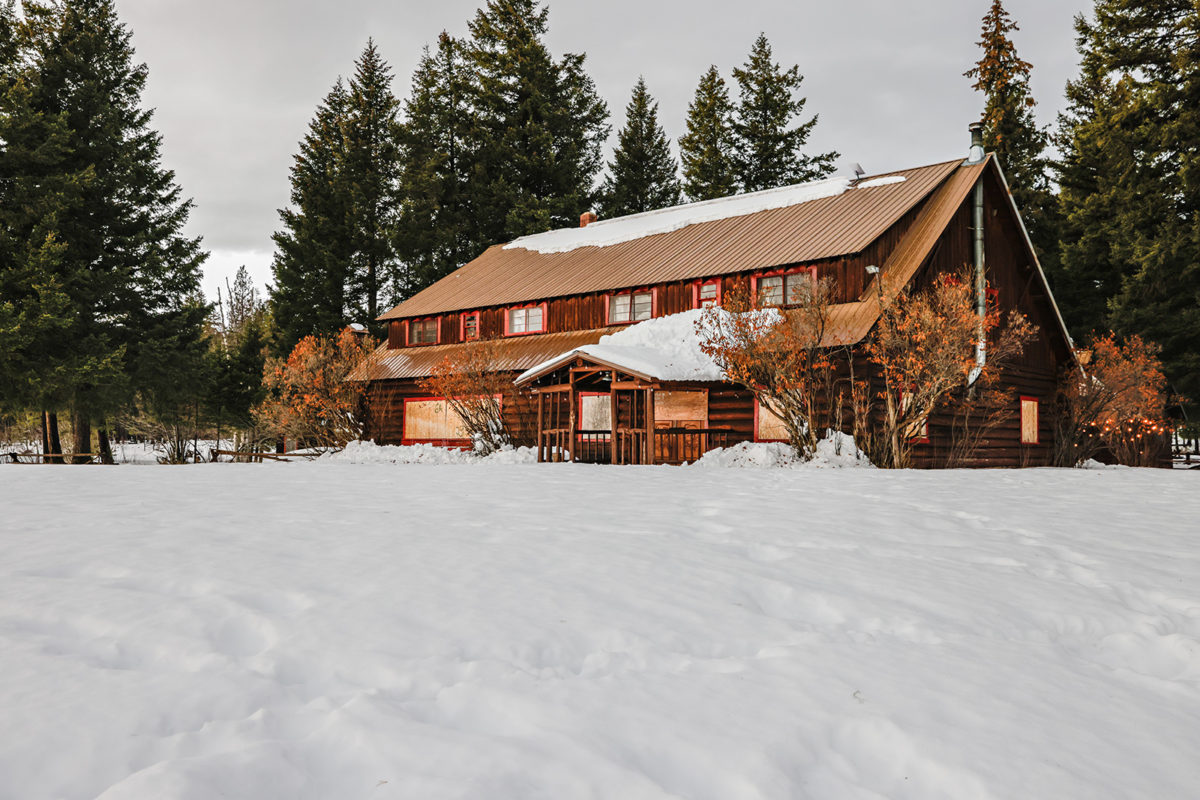Agency Approves Permit for New Holland Lake Lodge Owners
Flathead National Forest Supervisor Anthony Botello said the decision does not authorize any expansion of the historic lodge or activities beyond the scope of the existing special-use permit
By Tristan Scott
The Flathead National Forest on Friday approved a new special use permit for Holland Lake Lodge, authorizing the historic lakeside property’s new owners — the Utah developers behind Holland Peak, LLC — to operate the lodge within the existing footprint and facilities for the next 20 years.
Flathead National Forest Supervisor Anthony Botello signed the decision notice on May 23 after determining, based on analysis by a team of resource specialists and public feedback, that the applicants met the agency’s screening criteria and have “the financial and technical capability to operate the lodge.”
First permitted in 1924, Holland Lake Lodge has been in continual operation under a special-use authorization from the forest “for over 100 years,” according to Botello, who said the new permit applicants seek “to conduct the business in the same scope, intensity, size, scale, and footprint of the existing permit.”
“This approval does not include any new activities, nor any expansion of Holland Lake Lodge facilities,” Botello wrote in his decision notice Friday. “Within this authorization, Holland Peak, LLC would be required to meet terms and conditions within the associated special use permit to ensure that operations are conducted safely for visitors and resources are protected as required. This decision does not authorize any increase to the 10.53 acres of permitted area.”
Under the new permit, Holland Peak, LLC, can operate the lodge in its existing footprint on national forest land, provide guest accommodations, dining and beverage services (including the sale of liquor), host special events, and offer canoe and kayak rentals. Staffing will include a full-time lodge manager, a full-time maintenance manager, and a food and beverage manager. The resort would operate seven days a week from June through October.
Last reissued in 2017, the permit is reviewed annually. But approval of a new permit application requires environmental analysis under the National Environmental Policy Act (NEPA), including the opportunity for comment.
Having received the application last October, Botello and his team of permit administrators launched the environmental review process on April 7, when they proposed authorizing a 20-year permit to Utah investors Eric Jacobsen and Thomas Knowles. Doing business as Holland Peak, LLC, the prospective new owners have a purchase agreement in place with the lodge’s current majority shareholder; however, the existing special-use permit automatically expires with a change in proprietorship, requiring reauthorization by the U.S. Forest Service.
Even though the proposed new permit would mirror the existing permit, Botello said agency officials examined it carefully and with sensitivity, due in part to the lingering skepticism that has trailed the lakeside resort property since a separate expansion proposal faltered in 2022.

“Because of the last round of proposed expansion, there is a lot of trepidation and a lot of hesitation that is totally understandable,” Botello told community members during a public meeting last month at Swan Valley Elementary School in Condon. “But you know what we know now and as we get more information we will share that. Because people are interested. And that is how we conduct our public involvement — when people are interested and affected.”
In the spirit of transparency, Forest officials added materials to the queue of public documents on Holland Lake Lodge’s project page. The new documents include Holland Lake Lodge’s existing permit and the prospective new owners’ draft 2025 operating plan.
The project page now also includes information related to the agency-owned wastewater treatment facility that serves the lodge and a portion of the Holland Lake Campground and an RV dump station. During the lodge’s centennial anniversary last year, the owners did not open Holland Lake Lodge due to ongoing deficiencies with the system.
The wastewater treatment system will not be fully functional by this summer recreation season, Forest Service officials said, limiting the scope of this summer’s operations, which may include scaled-down activities than can be provided with limited or temporary wastewater facilities, such as weddings, boat rentals, and limited food and drink services.
Although environmental analysis of the treatment system’s replacement are separate from the special use authorization for the lodge’s new owners to assume control of the property, forest officials added the related materials in response to questions from the public.
“Any proposed changes to permitted activities or expansion would require further evaluation of effects, would include public input and review, and would require an additional decision prior to approval,” according to Botello, who said the most recent scoping process generated about 340 comments, and that he “carefully reviewed and considered comments before making this decision.”
Botello said the new permit holders are still required to submit an annual operating plan authorizing the special uses for each year, which the agency must approve. The operating plan must comply with the terms and conditions of the authorization. The final operating plan for the 2025 season is an appendix to the permit, Botello said, and was not required prior to Friday’s special use authorization.

The permit holders must also submit a master development plan within five years of issuance of the special use authorization.
“A master development plan is intended to be a long-range flexible plan designed to ensure alignment between the SUA holder and the Forest Service and ensure compliance with the Forest Plan,” Botello wrote in his decision notice. “Any actions proposed within the master development plan that are outside of the currently permitted activities, would require further analysis and public involvement prior to approval.”
Botello said based on the agency’s assessment, including technical, environmental and financial screenings of the permit application, it met the criteria for a categorical exclusion,” exempting the project from documentation in an environmental impact statement or an environmental assessment under NEPA.